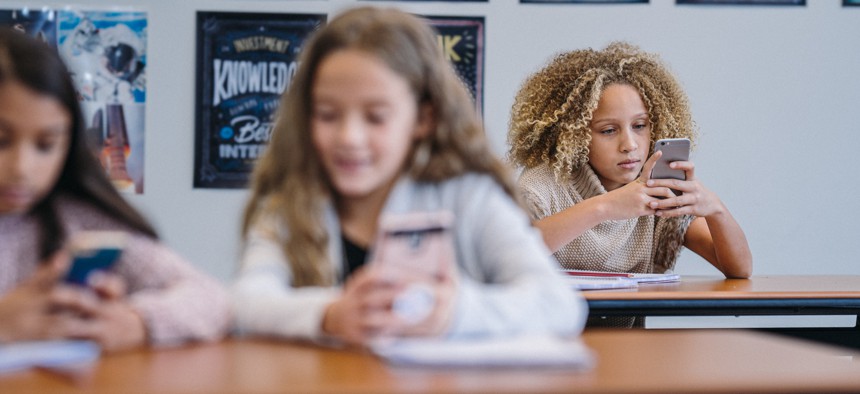Smartphone Restrictions in Schools Do Not Enhance Academic Performance or Mental Health, New Study Finds
A recent investigation carried out by researchers at the University of Birmingham reveals that prohibiting smartphones in educational settings does not necessarily lead to improved academic results or enhanced mental wellbeing among students. This groundbreaking study marks the first of its kind to juxtapose school smartphone policies against indicators of student health and academic achievement, and its findings have ignited a robust debate among educators and parents alike.
Lead researcher Dr. Victoria Goodyear emphasizes that the results should not be interpreted as an outright dismissal of smartphone bans in schools. Instead, she argues that such bans alone are inadequate in addressing the adverse effects associated with excessive smartphone usage. Dr. Goodyear suggests a paradigm shift toward limiting overall screen time rather than solely focusing on prohibiting phones within school grounds, stating, “We need to do more than just ban phones in schools.”
Key Findings of the Study
- No significant correlation was found between phone bans and improved grades or mental health.
- The study highlighted that increased time spent on smartphones and social media is linked to negative outcomes, including:
- Worse mental wellbeing
- Increased anxiety and depression
- Lower physical activity levels
- Poorer sleep quality
- Decreased academic performance
- More disruptive behavior in class
Comparison of Life Quality Indicators
| Indicator | With Phone Ban | Without Phone Ban |
|---|---|---|
| Mental Wellbeing | No improvement | No improvement |
| Physical Activity | No significant change | No significant change |
| Academic Performance | No significant change | No significant change |
| Classroom Behavior | No improvement | No improvement |
The research utilized recognized measures of mental well-being and assessed students’ anxiety and depression levels, along with academic performance indicators, through feedback from teachers.
Diverse Perspectives from Schools
While some educational leaders like Colin Crehan, head of Holy Trinity Catholic School in Birmingham, argue that restricting phone use poses minimal distractions to student learning, others report that phone bans have led to noticeable improvements in student interaction and reduced incidents of bullying. At Ysgol Aberconwy, where students’ phones are stored in magnetic pouches, students have expressed feeling safer and experiencing a more positive social atmosphere.
Georgie, a 15-year-old student, believes that before the rule change, the school environment was “quite aggressive,” sharing that incidents like fights were often filmed on phones, exacerbating tensions. After the implementation of phone restrictions, she observed a shift toward more face-to-face interactions among peers.
The Ongoing Debate
The debate surrounding smartphone usage among minors is heated, with calls from the Conservative Party aimed at tightening regulations on phone use in schools and discussions of a potential social media ban for users under 16, echoing policies in Australia. Technology Secretary Peter Kyle stated that he is closely monitoring developments in Australia and intends to evaluate the findings of the Birmingham study thoroughly.
Government response emphasizes that while educators have guidance on managing phone usage effectively, more comprehensive research is needed to draw definitive conclusions regarding the implications of smartphones on youth.
As schools grapple with integrating technology in a balanced manner to support students’ needs, the conversation continues to evolve with evidence, as well as personal experiences shaping policies for the future.

